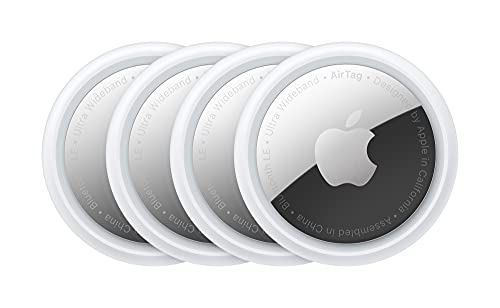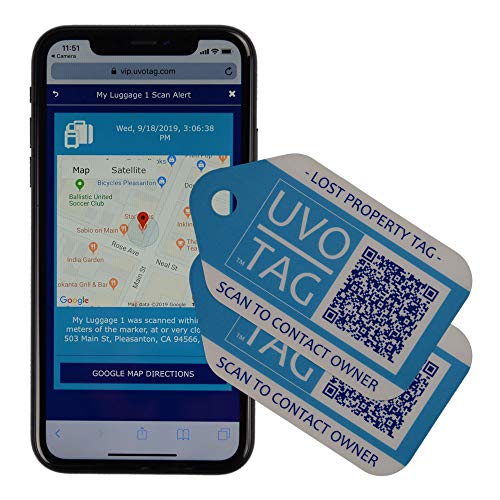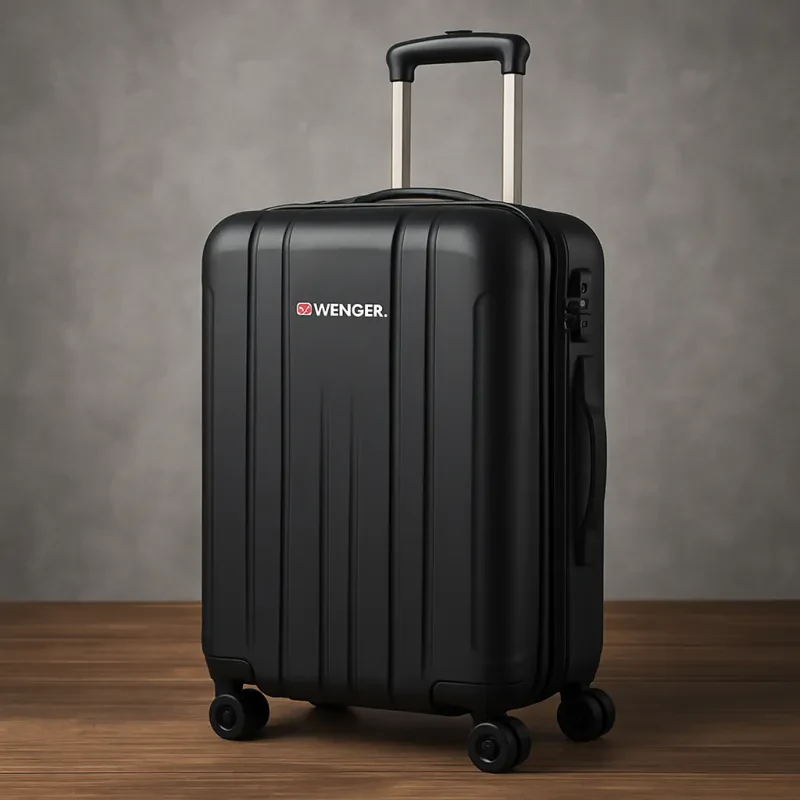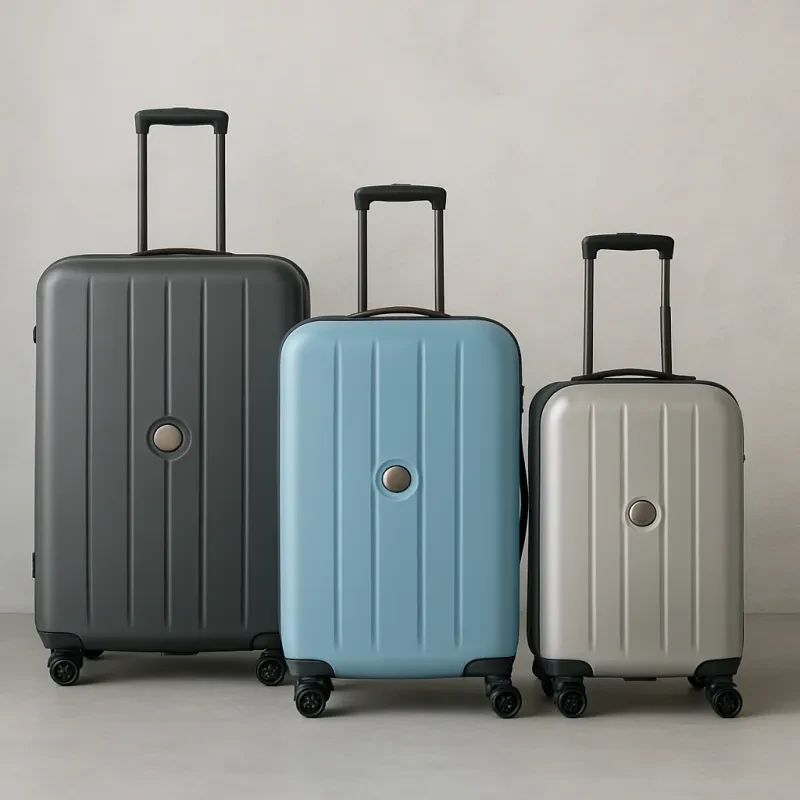Have you ever arrived at your destination only to discover the airline lost your luggage? That sinking feeling as you wonder if you'll ever see your belongings again is all too common for travelers today. But luggage trackers can provide peace of mind by allowing you to monitor your bags in real-time during your journey. Read on to learn about the different types of trackers, key features to look for, and how these devices can safeguard your luggage across all modes of transportation - whether cruising the friendly skies or sailing the seven seas. With luggage tracking technology, you can relax knowing exactly where your bags are at any given moment. So consider making a luggage tracker part of your travel routine, and avoid losing your luggage ever again.
The Challenges of Lost Luggage
For many travelers, the thought of arriving at your destination only to find your luggage missing is a nightmare scenario. Unfortunately, lost or delayed baggage is an all too common occurrence, especially for those flying. According to recent statistics, over 25 million bags are mishandled each year worldwide.
When your luggage goes missing, it causes tremendous stress and inconvenience. You're left without your belongings, toiletries, and essential items you need. You waste time and energy filing claims and following up with airlines or other transport companies. And there's always a possibility your bags may never be recovered.
Using a luggage tracker gives you peace of mind that you'll be able to locate your bags if they go astray. These devices allow you to track your luggage's real-time location and receive notifications if your bags are delayed or rerouted. Some trackers have additional features like built-in locks to prevent theft or tampering. While trackers can't guarantee you'll never lose your luggage, they do provide an extra layer of security and the ability to pinpoint your bags' whereabouts.
For business travelers, luggage trackers are particularly useful. Missing luggage could mean not having access to important documents, materials, or tech needed for a meeting or work event. Trackers give you more control so you can avoid lost baggage headaches and focus on your trip's purpose. Leisure travelers also benefit from knowing their bags will arrive safely at their destination without unwanted detours.
With trackers becoming more advanced yet affordable, there's little reason not to invest in one for your next journey. The minimal upfront cost will give you invaluable peace of mind that your luggage won't go AWOL. And if your bags do go missing, you'll have the means to get them back promptly. For hassle-free travel, luggage trackers are a simple solution to a stressful problem.
AirTag 4-Pack for Aviation
Enhance Aviation Security with the AirTag 4-Pack
Product information
$99.00 $84.99
Product Review Score
4.33 out of 5 stars
111 reviewsProduct links
Types of Luggage Trackers: GPS, Bluetooth, and RFID
When it comes to keeping tabs on your bags, you've got options. The three most common types of luggage trackers are:
•GPS trackers: These trackers use global positioning satellites to pinpoint the location of your luggage. GPS trackers typically offer the widest range and most precise location tracking. However, they can be pricier and may require a monthly subscription fee. They're best suited for air travel where coverage is more reliable.
•Bluetooth trackers: Bluetooth trackers connect using Bluetooth signals to locate your bags. They're budget-friendly but are limited to about 100 feet in range, so they really only work if your luggage stays within Bluetooth range of your phone. Bluetooth trackers are good for short-haul travel where you'll be close to your bags.
•RFID trackers: RFID trackers use radio frequency identification technology to detect when your bag passes through certain check-points with RFID readers, like major airports. They provide basic location updates but without the precision of GPS. RFID trackers are very affordable but rely on the availability of RFID readers along your route. They can be useful as a baseline deterrent against theft for air travel.
While GPS trackers may be the most advanced option, any luggage tracker is better than none at all. For many travelers, a combination of tracker types—like using a Bluetooth tracker for short-haul trips and a GPS tracker for long-haul journeys—provides the ideal balance of price, functionality, and peace of mind. With options to suit any budget or destination, there’s no reason not to invest in a little extra security for your bags.
Smart Luggage Tags - Location-Enabled ID (Pack of 2)
Easily track and identify your belongings with these innovative Smart Luggage Tags featuring Location-Enabled ID - a must-have accessory for aviation enthusiasts
Product information
$21.95
Product Review Score
4.11 out of 5 stars
111 reviewsProduct links
Key Benefits of Using Luggage Trackers
Trackers offer several useful benefits for travelers wanting peace of mind about their luggage.
Prevent Loss or Theft
The primary benefit of luggage trackers is preventing your bags from being lost or stolen. GPS and Bluetooth trackers use location services to pinpoint the exact location of your luggage. If your bags go missing, you can provide the location details to help recover them. Trackers also deter thieves since the bags can be traced.
Locate Misplaced Luggage
We’ve all had those moments of panic trying to remember where we stashed our luggage. Trackers eliminate the frustration of misplaced bags by allowing you to quickly locate them using your mobile device. With just a tap of a button, you’ll see your bags’ whereabouts on a map.
Monitor in Transit
Trackers give insight into your luggage’s journey, which is helpful when checking bags for flights or bus trips. You’ll receive notifications when your bags are loaded or unloaded, providing peace of mind that they made the proper connections. Some trackers even record details like temperature, humidity and physical impacts to alert you of any issues during transit.
Save Time
Trying to locate lost luggage or determine where it went astray consumes valuable time. Trackers streamline the process by pinpointing the location of bags instantly. The time savings add up, especially for frequent travelers, allowing you to spend less time dealing with logistical issues and more time enjoying your trip.
In summary, luggage trackers offer innovative technology to simplify travel and reduce stress over lost or misplaced bags. Their ability to track location in real-time provides a sense of security that your luggage will arrive safely at your destination. For hassle-free travel with fewer worries, luggage trackers are worth the investment.
Choosing the Right Luggage Tracker for You
With so many luggage trackers on the market, finding the perfect one for your needs can be tricky. The most important things to consider are:
Type of Travel
If you frequently travel internationally or over long distances, a GPS tracker is probably your best bet. GPS trackers use satellite positioning to pinpoint the location of your luggage anywhere in the world. Bluetooth trackers, on the other hand, are better suited for domestic travel or shorter trips since they rely on Bluetooth signals which are limited to about 30 feet.
Features
Think about the specific features that are most important to you. Do you want real-time tracking? Alerts if your bag goes out of range? A long battery life? Water resistance? The more features a tracker has, the more expensive it will likely be. Only pay for what you really need.
Budget
Luggage tracker prices can vary widely based on the technology and features. You can find basic trackers for under $30 or high-end models for over $100. Determine how much you're willing to spend before you start shopping to avoid going over budget.
Reviews
Read reviews from other travelers to determine how accurate and reliable different trackers are. Look for trackers with a proven track record of helping people locate their lost luggage. Check what airlines and travel experts recommend as well.
Ease of Use
Consider how technically savvy you are and how much time you want to spend setting up and managing your tracker. Some trackers are very simple to activate while others require downloading an app and manually enabling location services. Choose an option you'll actually use to get the most benefit.
By evaluating these factors and determining what's most important for your needs as a traveler, you can find a luggage tracker that gives you peace of mind at a price point you're comfortable with. The key is not to get overwhelmed by the options and focus on a solution that fits your specific requirements.
Luggage Trackers FAQs: Your Top Questions Answered
Have some burning questions about luggage trackers? We’ve got you covered. Here are the answers to some of the most frequently asked questions about these handy devices.
How do luggage trackers work?
Luggage trackers use different technologies like GPS, Bluetooth, or RFID to help you keep tabs on your bags. GPS trackers use satellite location data to show the exact spot of your luggage on a map. Bluetooth trackers pair with your smartphone so you can locate bags within a 100- to 300-foot range. RFID trackers require scanning at checkpoints to update the location. Most trackers use a combination of these technologies for maximum coverage.
Are luggage trackers worth the cost?
Luggage trackers can provide peace of mind for a relatively small upfront cost. Prices range from $20 to $100 depending on the brand and features. While any tracker is better than nothing, those with advanced GPS and long-lasting batteries will likely cost a bit more. For frequent travelers or those checking expensive luggage, a luggage tracker is absolutely worth the investment to avoid loss or theft. For occasional leisure trips, a more basic tracker should work just fine at a lower cost.
How long do luggage trackers last?
Battery life for luggage trackers can vary significantly based on the technology and quality. Basic trackers may last 3 to 6 months on a single charge, while higher-end trackers can last up to a year or more. Look for a rechargeable tracker with a replaceable battery so you’re not stuck buying a whole new device when the battery dies. Many trackers will alert you when the battery level gets low so you have time to recharge or replace it before your next trip.
Can I use a luggage tracker for other bags?
Absolutely! Luggage trackers can be used to track any personal item that you want to keep tabs on while traveling. Place trackers in your carry-on bags, laptop case, backpack, or any other luggage to monitor their location. Some trackers are designed to specifically pair with multiple bags so you can locate them all from one place. Just be sure to test that the tracker has an adequate range and battery life for your intended use. With the right tracker, you'll never lose an important item again!
Conclusion
So there you have it, folks. Luggage trackers can give you that extra peace of mind when traveling. With all the options available, take some time to find the right one for your needs. Consider battery life, connectivity, size, and durability when making your choice. For most travelers, a Bluetooth or GPS tracker should do the trick. And be sure to test it out before your trip! With a good luggage tracker in hand, you can explore the world with confidence, knowing exactly where your bags are. Safe travels!




